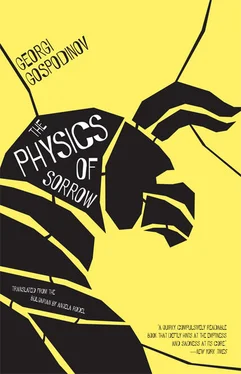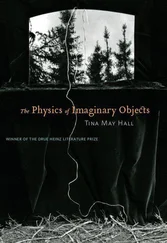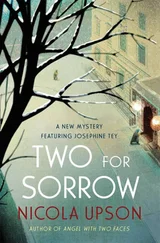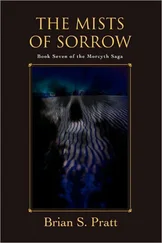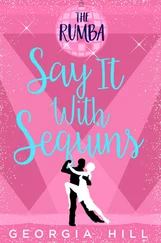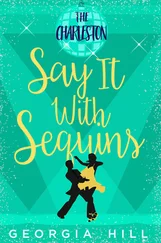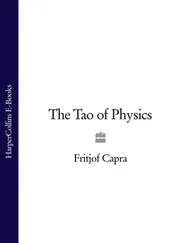The story of a college classmate of mine, who would spend several hours every day in the noisiest café near the university, desperately hoping to find someone to marry her before she went back to her hometown of B. There, her father would scream at her from the doorstep: “Did you get married yet, girl? What did we waste all that money on for these five years, only to have you come back an old maid? There’s no man for you here!”
She would sit there, slowly sipping the biggest coffee in the world, waiting. Her secret desire for marriage was already painfully obvious. All the men avoided that table. Once she called me up in a panic, saying that she was in a very tight spot, her father was really sick and she wanted to bring home some man before he passed away. Just this once, she assured me. I agreed, we went to her hometown. They had laid out a huge table under the trellis, around which her closest aunts and uncles and a few neighbors were sitting in gloomy silence. They carried out her father, he looked like a very ill local Don Corleone. I went up to him, he looked at me for a full minute, tried to say something, coughed, and they carried him back inside.
Years later, I happened to end up at the bus station in the same town. An old woman peered at me and cried: “Hey, there’s the boy! The same one who lied to our girl and left her at the altar, why didn’t you get married, my boy. ”
Books with their old socialist price tags from bookstores on the brink of going out of business, which we would sell in the courtyard of the university. Zoo, or Letters Not about Love by Shklovsky, a collection of Kafka’s letters entitled I Was Born To Live in Solitude , all pocket editions, and Joyce’s Portrait of the Artist as a Young Man , in hardcover, for a whopping 4.18 leva, but nobody bought it. Once upon a time and a very good time it was there was a moocow coming down along the road and this moocow that was coming down along the road met a nicens little boy named baby tuckoo.
These are just the little things that will fall by the wayside, everything else is there in the newspapers from that time. Yet despite everything, the ’90s was the most lively, the best decade in which everything could have happened. We were young for the last time then. It was then that Gaustine appeared, a philosophy drop-out, with his ingenious projects (and flops), which occupy a whole separate notebook.
Why does Gaustine continue to be important to me? I’ve rarely had friends. Empathy predisposes you to closeness with people, but not in my case, when the weight of others’ sorrows pressed down on me like a sickness. No women, no relationships, no friendships. But Gaustine seemed to be made of a different time and different matter. I don’t know anyone like him — translucent, yet simultaneously opaque. I would pass through him like thin air or run into a glass wall. But despite this, or perhaps precisely because of it, he was the only one I could call a friend.
GAUSTINE’S PROJECTS
All the ways of earning money honestly had slowly evaporated. One day, we were hanging around the movie theater to see which new films were out. The tickets were unattainably expensive, we just gaped at the poster and a few photos in the display window. Then Gaustine had an ingenious idea: we would retell movies. A detailed retelling over the course of thirty minutes for a minimal fee. His “Movies for the Poor” Project. Complete dumping of the film industry. And he got really worked up. Can you imagine what a move this is, what a historical reversal from the visual back toward the narrative? You stand in front of the movie theater, mingling with those folks hanging around outside, and strike up a casual conversation, saying how amazing the film was, but these movie theater types are motherfucking bloodsuckers for charging those prices; however, you’ve seen it already and would be happy to retell it to them in detail in exchange for an absolutely negligible 700 leva. Tickets cost ten times that amount. We gather up a group of fifteen or so and we’re good to go.
Wait, wait, I interrupt him, when are we going to watch the movie?
We’ll watch it afterward, after we get the money, Gaustine replies.
But then what will we tell them?
We’ll make it up, he replies innocently. How hard could it be, you’re a writer, right? You’ve got a title, a few lines from the poster and a couple photos in the display window. What more could you want?
He was something else. He wasn’t even kidding. He had absolutely no sense of humor. Like all obsessed people. Like those who are off the beaten track, as my grandma would say. Like revolutionaries and women — according to Nietzsche.
Movies for the Poor. Like those Tamagotchi for the poor from that old joke. Tamagotchi, if anyone still remembers, were those pager-like (perhaps I need to explain what a pager is, too?) gadgets on which you could take care of your electronic pet, feed it at certain times, give it water, and play with it when it whined. And when you got sick of it, you’d ditch it for a few days, until it starved to death. Where have all those Tamagotchi gone? To all the old pagers. A person has no idea how much death he is capable of generating.
I know I’m getting sidetracked, but let’s have a minute of silence for the souls of:
The pagers of yore
Tamagotchi
Videocassettes and the VCR
Cassette-tape players,
which buried eight-tracks,
which buried record-players,
Audiocassettes
Telegrams, with their whole accompanying ritual
Typewriters (allow me to add a personal farewell to my Maritsa, filled with cigarette ashes and coffee from the ’90s.) Writing on a typewriter required physical exertion, a different type of movement, if you recall.
OK, the minute’s over. What were we talking about? Movies for the Poor, yes, but first let me finish the joke. Since Tamagotchi also cost money, Tamagotchi for the poor also cropped up. And you know what they were? A cockroach in a matchbox. That’s it. It may not be funny anymore, but I insist upon gathering up these odds and ends, all the things that have already passed away, they’re gone, dead. Which I guess is the opposite of what is written: “to carry them through the flood alive and to go forth and multiply again”. I’ve gotten completely turned around. I don’t know whether the things I’ve now chaotically and slightly hysterically saved from my own flood will be able to live, let alone go forth and multiply. I know that the past is as fruitless as a barren mare. But that makes it all the more dear to me.
That idea about movies for the poor didn’t bear any fruit, either. Let me just say that we barely escaped unscathed after I tried to tell the first group the story of a film I hadn’t seen.
The “Personal Poem” project also met a similar end.
There’s no such thing as shameful work, Gaustine repeated this old chestnut one morning. You’ll sit there like those street artists who draw people for money, you’ll hold a pencil and paper, saying: Would you like me to write a poem for you? Every pretty girl has the right to a poem. (I think that was a quote). It’ll only take ten minutes.
So there I was on a bench, in the park in front of Café Crystal downtown, with a few sheets of paper, a pencil, and a discreet sign in front of me offering “personal poem” services. Toward the end of the second uneventful hour, a woman of around fifty came up to me. This wasn’t the way we’d imagined it. For some reason, we’d imagined all of our clients being twenty-year-old girls. She was plump and looked like a bad guy from a Soviet cartoon. She asked for her personal poem. The designated ten minutes passed. Nothing. My head was empty and hollow, like a basement in which you can hear only the minutes dripping and trickling away. I started feeling worse and worse for both of us. She started sweating, took out a tissue, can I move, yes, of course, I’m not drawing you, after all. Where should I look? It doesn’t matter, slightly off to the side, you don’t need to look at me, it’s a bit distracting. She was either romantic or nouveau riche. And with every passing minute echoing in the void, my failure gleamed ever brighter. Finally, I decided to grab the bull by the horns. I raised my head, looked her straight in the eye and said: “Actually, you have such a strong aura today that it’s very difficult for me to concentrate. Would you mind stopping by some other time?”
Читать дальше
